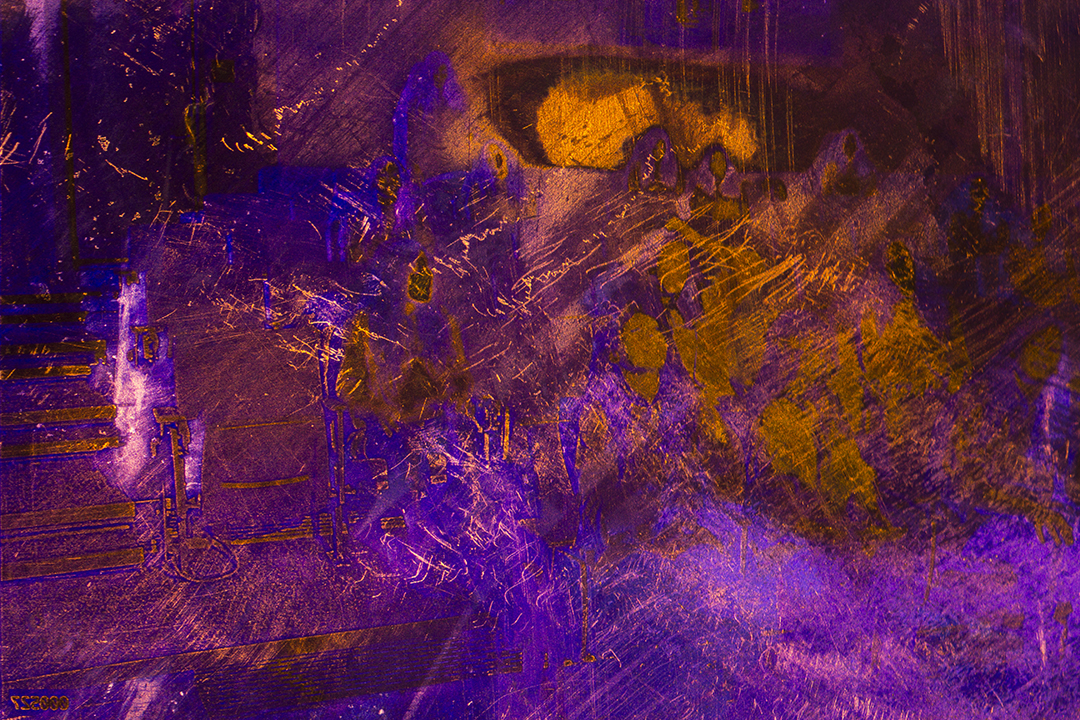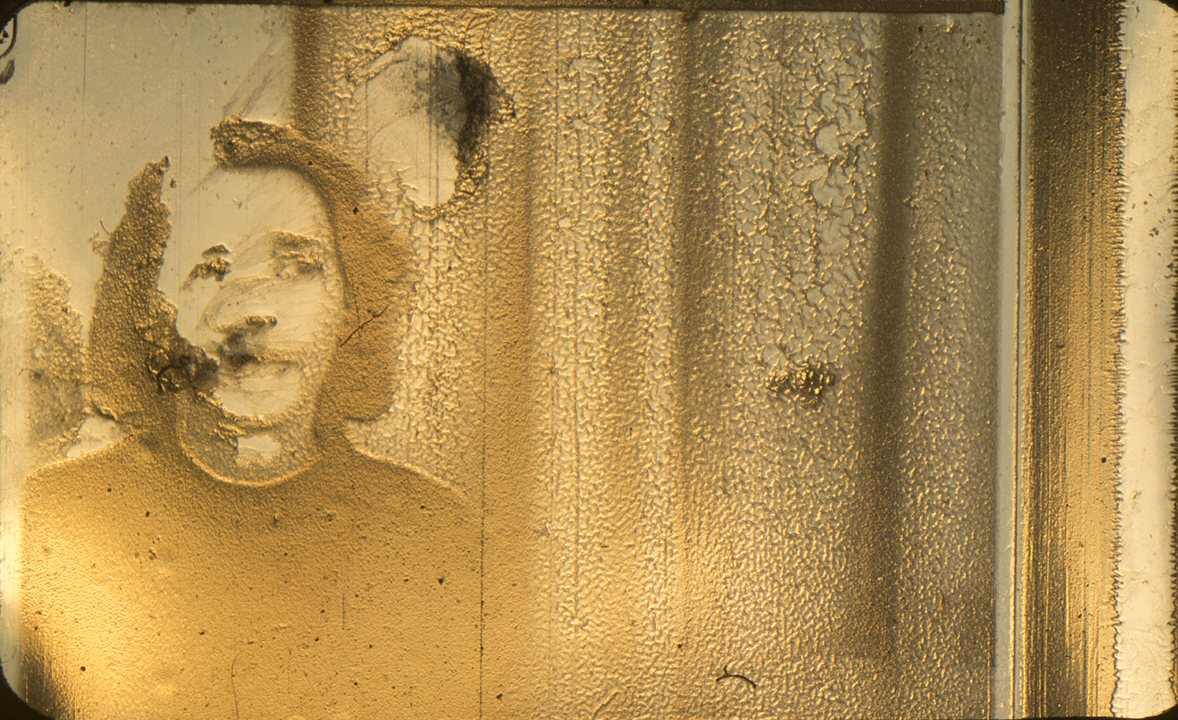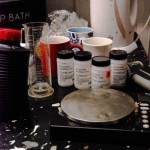The Mirror: Reshaping and Lighting Film Emulsion (LIFT)
1137 Dupont Street
Toronto, ON M6H 2A3
Canada
The Mirror: Reshaping and Lighting Film Emulsion – An Abstract:
In this two day workshop, we will be exploring the anatomy of a film strip through a variety of physical and chemical phenomenons that will reshape, destroy and sculpt the film emulsion. Techniques such as reticulation, bleach etching and mirror toning will all be covered and applied to previously processed strips of film, followed by their analysis and interpretation on an optical printer. Additionally, issues concerning both the aesthetic and practical application of these techniques will be addressed through discussions and film screenings, providing participants with a grounds for establishing a sound working method for each process.
Film stock, chemistry and found footage will be provided during the workshop, but participants may also bring in their own footage keeping in mind that this is essentially a course on destroying film…
[Below: Documentation from the previous edition of The Mirror and Colour Bleach Etching Test)Attending the Workshop [Dates, Fees & Requirements]:
[Workshop Listing on LIFT’s Website]This workshop is being produced by LIFT in Toronto, ON and will be occurring on August 17 & 18th between the hours of 10:00 AM – 6:00 PM, EST. The second day of the workshop will be divided into two, four hour seminars.
All LIFT policies apply to this workshop (LIFT Policies) and all registration must occur through LIFT (LIFT workshop page)
There are no additional requirements for workshop attendance, but participants are encouraged to bring their own footage for working with during the workshop. Additionally, those who are particularly sensitive to chemical fumes may consider bringing an acid respirator for use during the workshop. However, we will be working with relatively mild chemistry.
Selected Screenings:
(Note: not all works will be shown in their entirety, or perhaps even at all [pending approval and rental fees].)
- Terminus for You (Nicolas Rey, 1996, 16mm)
- At Hand (Andrew Busti, 2004, 16mm)
- Buffalo Lifts (Christina Battle, 2002, 16mm)
- Passion (Jürgen Reble, 1999)
- Removed (Naomi Uman, 1999)
- Deep State (Karen Mirza & Brad Butler, 2012)
- 2 or 3 things I know about Ed (Zachary Quinn Scheuren)
- Various technical documentations
Further Readings & Online Resources:
Copies of these books & articles will be provided during the workshop and can also be secured at various local libraries and on the web:
- The Master Photographers Toning Book (Tim Rudman)
- Developing (C.I. Jacobson)
- Jean-Pierre Sudre (Various Authors)
- Guilty (Georges Bataille)
- Mordancage Alternative Printing Process (Elizabeth Opalenik)
- Recipes for Disaster: A Handcrafted Film Cookbook (ed. Helen Hill)
- Unblinking Eye: Mordancage
Frequently Asked Questions:
Q: I’ve never worked with motion picture film before. Will that limit my experience?
A: No, experience with motion picture film is not necessary when participating in the workshop and we will try and accommodate as many questions you have possible before, during or after the workshop.
Q: I have some film I would like to bring into the workshop to work with. Is this okay?
A: Yes, but there are a few things you should keep in mind when bringing in film for this workshop. First off, because we will be limited on time, your film should already be processed. This will not affect your ability to work with any of the techniques presented in the workshop per say. Second, it is recommended that you avoid bringing in a film of particular value or significance as we cannot guarantee that it will not be damaged or ruined beyond a usable extent. This is, after all, a workshop on essentially destroying film — so the choice is entirely yours.
If you do decide to bring film, there are a few things you should keep in mind: first, while it is possible to exercise some of the techniques reviewed in this workshop on all varieties of film, the majority of the techniques work best specifically with an image formed of silver. What this means is that black and white film (which is typically formed solely of silver) will be the most versatile stock to bring, where as color stocks will be more limited (as they typically have the silver removed in processing). The only exception to this is in regards to color film that has been bleach-bypassed, a specific lab technique which retains the silver in the dense regions of the color emulsion; if the utilization of color film in this workshop is of particular interest to you, than email us to discuss the topic further — additionally, we will be discussing it in the workshop itself.
As for film guage (i.e. super-8mm, 16mm, 35mm, 70mm, etc), we will have equipment to deal with all shapes and sizes of celluloid, so this should not be of a concern…
Q: I missed the opportunity to attend this workshop. Will you be running it again?
A: If the demand exist, absolutely. Send us an email or message requesting it.






Leave a Reply
Want to join the discussion?Feel free to contribute!